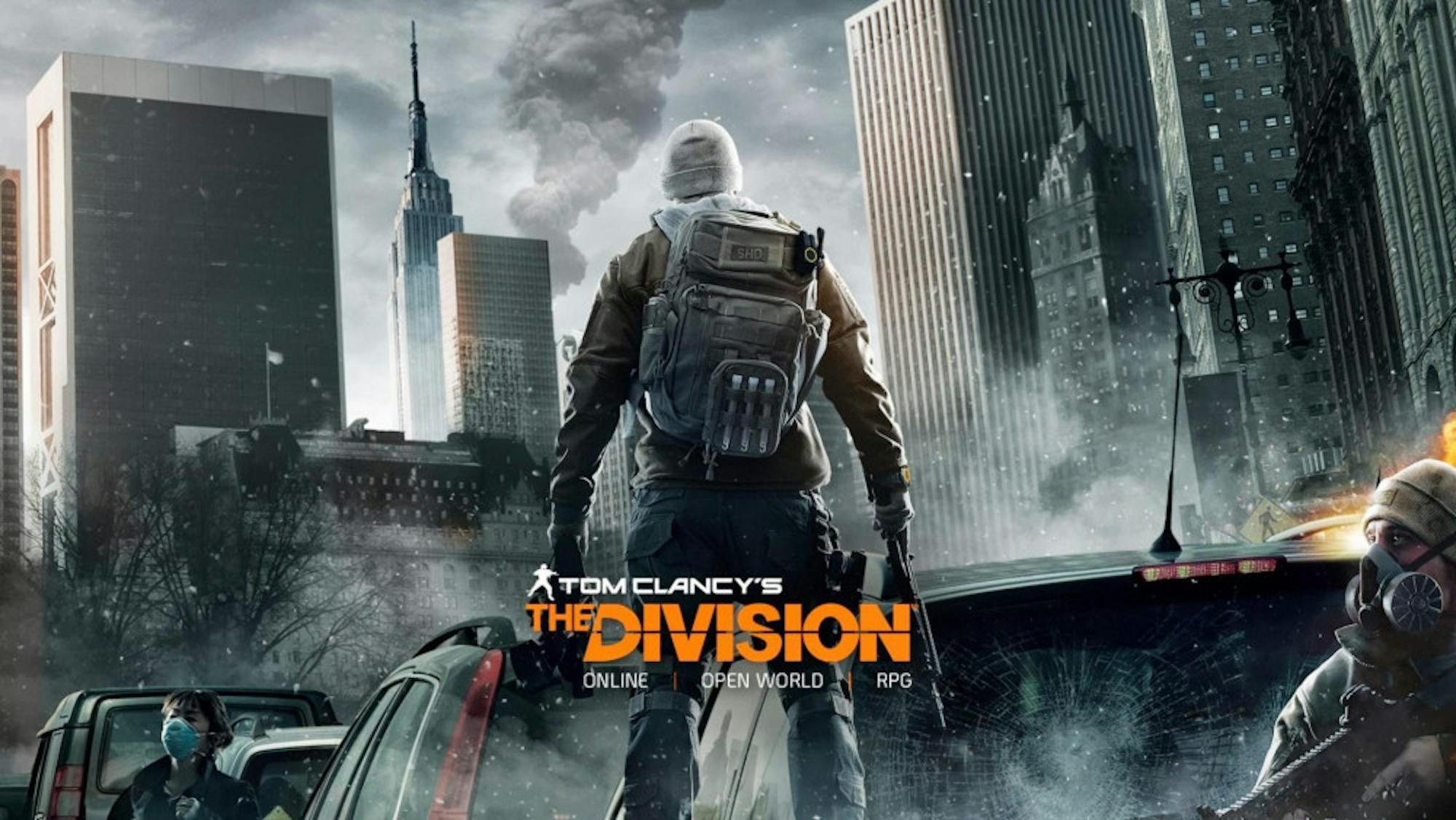Tom Clancy’s name has been thrown into the titles of so many thriller novels and video games of varying quality that it has become a red flag for mediocrity, and its inclusion in the title of “The Division” doesn't help matters. "The Division" is an open-world third-person shooter with role-playing game elements set in New York City where the player plays as an agent for the Strategic Homeland Division working to restore order after a virus brought down the U.S. government. There appears to be some semblance of a story and character development, but the end result is a game that just allows the player to run around Manhattan with a license to kill.
Many of your enemies are Americans who have turned to lives of crime in order to get by in a collapsed society, as opposed to zombies, Nazis or other extremists. "The Division" rewards the player for killing these marauding bullet sponges with experience and equipment, so it’s clear that whatever the "Strategic Homeland Division" is, it is not exactly benevolent. Players won’t be reading anyone their Miranda rights and hauling them to court; all disputes are resolved with vicious exchanges of hot lead. Unsurprisingly, the reviewer did not feel comfortable emptying magazine after magazine into people who were almost certainly downtrodden members of society before everything fell apart. In this world, there are no heroes or villains, only those with faster trigger fingers and bigger guns. In light of recent events bringing cases of police brutality against minorities into the mainstream media, “The Division” treads on dangerous ground.
Thematic concerns aside, Ubisoft has itself a solid, albeit uninspired title that builds on the detailed map design and verticality of “Watchdogs” (2014) and creates opportunities for meaningful player vs. player interaction. Unlike most open-world games that contain cities, this depiction of Manhattan allows the player to walk inside a decent number of buildings and scour fully-furnished apartments and stores for loot. The unfortunate thing is that the city is meant to feel like a wasteland, so it can get a bit lonely sometimes unless you are willing to go over to the Dark Zone or play co-op.
The Dark Zone is the foreboding player vs. player area of the city where you can cooperate with — or kill — other players in order to gain loot.Some loot can be acquired in the safe zones where you only face AI enemies, but rare items are more easily found if you are willing to take some risks and either work with other players or hunt them. When playing alone, this has great potential to feel frustrating if you run into groups of coordinated players who shoot you on sight, so it’s strongly recommended that you buddy up for protection — preferably someone you know who won’t shoot you in the back.
Neither the weapons nor the various quests and activities stand out as particularly compelling. The weapons are all ones that will be familiar to those who play modern military shooters and shots don’t feel impactful when the enemy absorbs so many of them. While enemies in other titles within the same genre such as “Borderlands” (2009 - 2014) or “Destiny” (2014) are also bullet sponges, huge health bars make sense in the context of those titles, whereas “The Division” takes place on Earth and is somewhat grounded in reality, where people can't take that many hits. Another concern is that there isn’t much content to be had, even for a beta. The player is limited to a fraction of the full map and skill tree, but the significant amount of content that was roped-off for the beta does not inspire confidence that the title will have enough content on release to satisfy many players.
Ubisoft can be counted upon to create beautiful environments and set pieces, but its gameplay in many of its titles often feels like an extension of something that has already been done before. From the limited content shown in the beta, it doesn’t seem like there are enough distinguishing features to persuade people to play “The Division” over other similar titles. One can only hope that Ubisoft intentionally held back some game-changing content in the beta and that innovative features in the full release will prove this reviewer wrong.
“The Division” will be released on March 8 for PC, PS4 and Xbox One.
Tom Clancy's The Division' beta dragged down by iterative gameplay

A screenshot from Tom Clancy's online video game "The Division."





